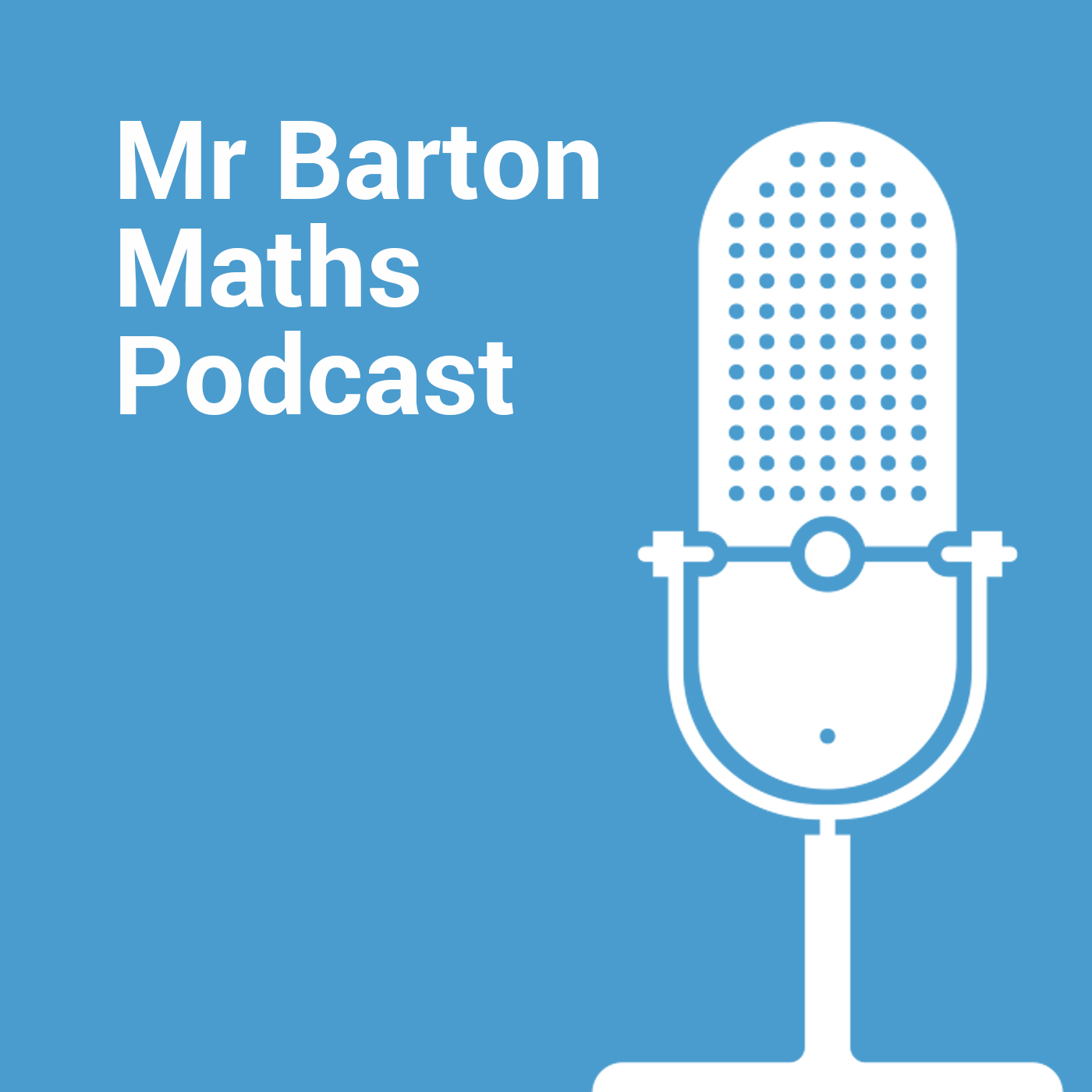
Craig Barton interviews guests from the wonderful world of education about their approaches to teaching, educational research and more. All show notes, resources and videos here: https://www.mrbartonmaths.com/blog/
Kris Boulton and maths teacher Lee Wheeler join me for the second of our series of Atomisation in Action episodes, where we discuss the benefits and challenges of applying the principles of Atomisation in the classroom. This time, we discuss how Atomisaiton can go wrong, and how it works with sets and mixed-attainment classes. You can access the show notes here: mrbartonmaths.com/blog/atomisation-in-action-2

Episode sponsor
This episode is proudly supported by HFL Education’s Making Fluent and Flexible Calculators. You can check out their ‘Making Fluent and Flexible Calculators’ programme here
***Plugs***
- Craig Barton is coming to Australia in June 2025. Click here to book your place!
- Check out Craig’s brand new 90-minute online CPD series, including two on Atomisation and a free workshop, here
Links from Kris
- Sign up for the Unstoppable Learning newsletter
- Visit the Unstoppable Learning website
- Fill out the form if you are interested in Kris’ Unstoppable Learners programme for your children
Episode details
Kris Boulton and maths teacher Lee Wheeler join me for the second of our series of Atomisation in Action episodes, where we discuss the benefits and challenges of applying the principles of Atomisation in the classroom. This time we discuss how Atomisaiton can go wrong, and how it works with sets and mixed-attainment classes.
Episode summary
In this episode, Craig Barton welcomes back Chris Boulton and Lee Wheeler to discuss the concept of atomization in education. They explore the rise of Substack as a platform for educators, the importance of data in assessing teaching methods, and the application of atomization in primary education. The conversation delves into the challenges and pitfalls teachers face when implementing new strategies, emphasizing the need for careful design and the importance of allowing time for concepts to embed in students’ understanding. In this conversation, the speakers delve into the complexities of teaching methodologies, particularly focusing on atomization and its implementation in the classroom. They discuss the importance of student engagement, the challenges of lesson planning, and the necessity of adapting teaching strategies to cater to different ability levels. The conversation highlights the significance of attention in learning, the role of empathy in lesson design, and the critical nature of example selection in teaching. Through shared experiences and insights, the speakers emphasize the potential gains from effective teaching strategies and the importance of continuous adaptation and reflection in educational practices. In this conversation, the speakers delve into the complexities of teaching mathematics, particularly in mixed ability classrooms. They discuss the importance of mathematical communication, the challenges faced by both high and low attainers, and the role of struggle in learning. The conversation emphasizes the need for teachers to adapt their methods to engage all students effectively, ensuring that every learner feels capable and motivated. The speakers also highlight the significance of retrieval practice and the importance of building a supportive classroom environment that fosters confidence and understanding in mathematics.
Takeaways:
- Substack is gaining popularity among educators as a platform for sharing ideas and resources.
- The positive impact of atomization can be seen in improved student results and engagement.
- Data collection is crucial for assessing the effectiveness of teaching methods.
- Atomization can be effectively applied in primary education, but requires adaptation for younger learners.
- Teachers must be aware of the cognitive load when introducing new concepts to students.
- Engagement levels can drop if students become too familiar with instructional patterns.
- It’s important to allow time for students to master concepts before introducing new material.
- Teachers should view teaching strategies as flexible guidelines rather than rigid rules.
- Classroom experiences can vary significantly, and adjustments may be necessary based on student responses.
- Investing time in refining teaching practices leads to better outcomes for students. You definitely don’t need it in order to see some gains.
- There are still gains from getting it in the moment.
- Tiering is so, so important.
- If the kids aren’t paying attention, your sequence isn’t going to work.
- Gather more information and then make a decision.
- You have to think about it so much beforehand.
- The choice of example is so important, a choice of examples, right?
- Using multiples of 10 has been something that’s been so useful.
- The more I think about it, the more I think this is just brilliant.
- We can stop sooner and practice way more of what really matters. The correct answer to an exam question can sometimes be an equation.
- Training students to communicate mathematical information is powerful.
- Promise students that understanding complex concepts is achievable.
- Independent practice should lead to more challenging and engaging tasks.
- Pacing in the classroom is crucial to maintain student engagement.
- All students can understand higher-level concepts with the right support.
- Teaching low attainers can be a profound experience for educators.
- Struggle in learning should be strategically placed in the learning process.
- Retrieval practice is where the real challenge lies for students.
- Every class is inherently mixed attainment, requiring tailored teaching approaches.
Video
My usual plugs
- Check out my brand new 90-minute online CPD series here
- You can help support the podcast (and get an interactive transcript of this episode) via my Patreon page at patreon.com/mrbartonmaths
- If you are interested in sponsoring an episode of the show, then please visit this page
- You can sign up for my free Tips for Teachers newsletter and my free Eedi newsletter
- My books are “Tips for Teachers“, “Reflect, Expect, Check, Explain” and “How I wish I’d taught maths”
